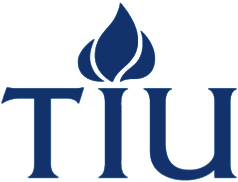Trinity Evangelical Divinity School (TEDS) has received a grant that will further enable it to integrate the best of scientific research into its core curriculum, as one the latest participants in the Science for Seminaries project, an initiative of the American Association for the Advancement of Science (AAAS).
Science for Seminaries is a project of the AAAS Dialogue on Science, Ethics, and Religion (DoSER) program, in consultation with the Association of Theological Schools (ATS). The $75,000 grant is funded by the John Templeton Foundation. Recipients of the grant are Professors
Stephen P. Greggo, counseling department chair and professor of counseling, and
James M. Arcadi, assistant professor of biblical and systematic theology, as well as Geoffrey Fulkerson, director of the
Carl F.H. Henry Center for Theological Understanding (HCTU). The grant proposal was a collaboration between TEDS and HCTU.
John Slattery, DoSER’s senior program associate, said that “the goal of Science for Seminaries was to create a project where seminary professors felt supported, pedagogies were strengthened, and seminaries could tailor the project to fit the needs of their particular community.” By providing scientific resources that seminaries can use in coursework and at campus-wide events, the project hopes to foster a positive understanding of science and encourage informed dialogue on scientific topics among future religious leaders.
“TEDS curriculum has a firm and worthy emphasis on biblical exegesis,” Greggo said. “The proclamation of the gospel through preaching and teaching is a curricular strength, and it is important to blend evidence-based insights and strategies into pastoral and spiritual formation to equip future leaders for the challenges that lie ahead.”
Arcadi added that he is especially excited to take Trinity’s “culture of scientific engagement that has been fostered in extra-curricular environs” and bring it more directly into the classroom. “My hope is to spend some time doing some research in the hard sciences to see what I can draw on to enhance the biblical and theological teaching I am already doing.”
While there will be a few events led by HCTU as a part of this project, such as a public lecture in fall 2021 and two faculty workshops, the thrust of the initiative centers on TEDS MDiv core curricular revisions in three courses: Introduction to Counselling Ministry (taught by Greggo), Theology I, and Sanctification (taught by Arcadi).
Greggo noted that, in light of dramatic cultural shifts, globalization, bioethical challenges, and other developments around the discipleship needs that clergy face, the standardized curriculum for his core course needs to be updated.
“The thrust of my work will be to seek out and synthesize materials that define best practices for pastors using evidence-based approaches to assist in the application of Scripture,” he said.
Scientific research in cognitive structures and lifespan development “provides insights to expand our understanding of human beings and how narratives develop holistically across the lifespan.” As TEDS graduates eventually find themselves in positions to counsel, “they will benefit from these insights as they implement applied biblical exegesis to further sanctification and virtue development.”
For Arcadi’s part, he will be spending some time working to incorporate scientific reflections into the theological anthropology unit of his “God of the Gospel” (aka Theology 1) course. “Moving beyond issues of human origins—important as they are—I will focus on resources within contemporary psychology and neuroscience that can help illuminate biblical teaching about the uniqueness of human beings,” he said.
With respect to his course on sanctification, Arcadi plans to integrate scientific research revolving around behavioral change: “I think sanctification is a supernatural activity, brought about by the work of the Holy Spirit in the lives of Christians,” he said. “But sanctification is also a phenomenon related to human behavioral change. Which is just such a phenomenon that psychology and neuroscience have long been studying.”
For more than a decade, HCTU has been supporting faculty projects that are collaborative in nature and addressing a pressing need of the church. Meanwhile, most recently, HCTU’s
Creation Project has been thinking about science more generally and the doctrine of creation.
“This grant seems like an obvious and important step—supporting our faculty as they think about how the sciences do and do not impact theological formation and, correspondingly, a divinity school curriculum. It is our great honor to support Drs. Greggo and Arcadi in this project,” Fulkerson said.
"While most of our TEDS graduates will not, in most cases, also be biologists, engineers, or physicians, people in such vocations fill up an increasing portion of the pews. And in a STEM society, the questions surrounding those professions will only multiply, thus requiring some level of pastoral and theological reflection on technical scientific questions."
For these reasons and more, TEDS stands significantly poised to help future pastors and churches think biblically and wisely in their societal contexts as they respond to the scientific advancements and understandings of our age. This grant and the developments it funds will contribute to doing precisely that.
# # #
The American Association for the Advancement of Science (AAAS) is the world’s largest general scientific society and publisher of the Science family of journals. AAAS was founded in 1848 and includes 261 affiliated societies and academies of science, serving millions of individuals. Science has the largest paid circulation of any peer-reviewed general science journal in the world, with an estimated total readership of 1 million. The nonprofit AAAS is open to all and fulfills its mission to “advance science and serve society” through initiatives in science policy, international programs, science education, public engagement, and more. Building upon its mission, AAAS established the Dialogue on Science, Ethics, and Religion (DoSER) program in 1995 to facilitate communication between scientific and religious communities. For the latest information and news about AAAS DoSER and the Science for Seminaries Project, visit AAAS.org/DoSER and ScienceforSeminaries.org.

